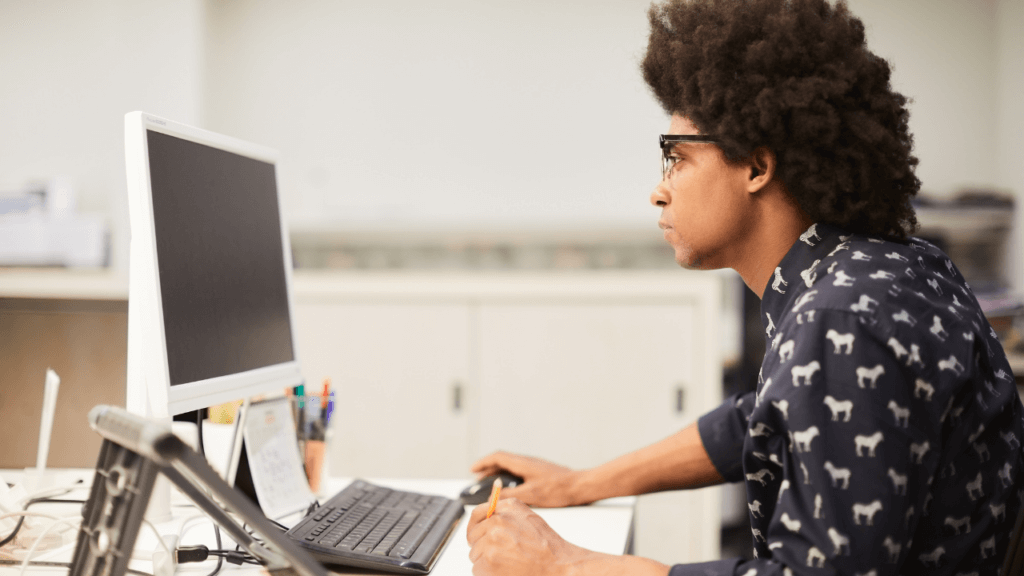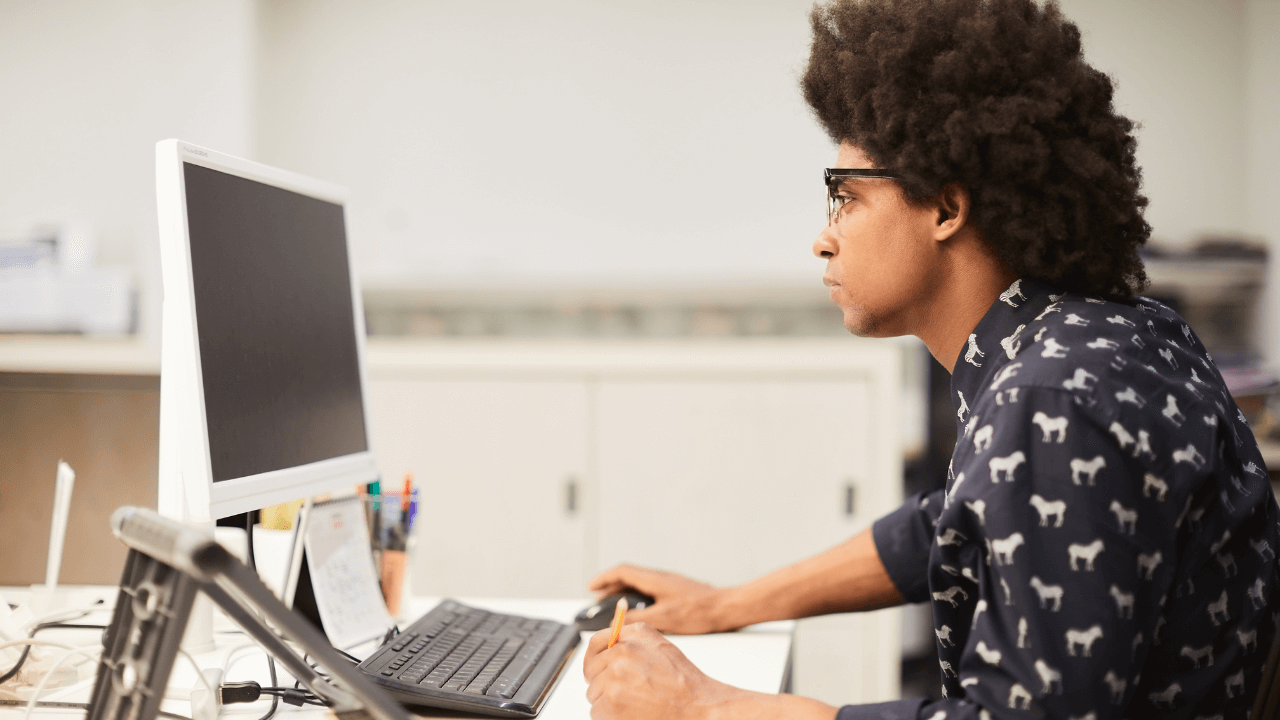
Software copyright infringement is the illegal use or duplication of copyrighted software. This is both a civil and a criminal matter.
It is very important to understand software copyright law to avoid being charged or sued for infringement. If you have already been accused of software copyright infringement, understanding the law will give you an idea of what to expect when you go to court.Of course, it is also important to have experienced legal counsel if you have been accused of software copyright infringement. The right attorney can help you understand the law, learn how it applies to your case, and develop legal strategies. Contact Rosenblum Law Firm today for a free consultation, and keep reading to learn about software copyright infringement.
Understanding Software Copyright Law
Software is copyrighted similar to books, music, and other creative works. According to federal law, individually created software is copyrighted for 70 years after the death of the creator. Work for hire software, or software created by an individual for an employer, is copyrighted for 95 years after publication or 120 years from the date of creation, whichever is shorter.
For software copyright law to apply, the software copyright must be registered with the federal government. Registration is an inexpensive and simple process, so most software is copyrighted.
Copyright law only applies to source code, object code, and UI/UX creative elements. The functionality and method used to create the software must be patented, which falls under different laws and rules.
Common Forms of Software Copyright Infringement
There are three different forms that software copyright infringement can take.
- Direct copyright infringement occurs when software is copied without permission.
- Contributory copyright infringement occurs when someone assists or induces infringement, even if they did not directly copy the software themselves. Contributory infringement includes selling software that was copied illegally.
- Vicarious copyright infringement occurs when someone benefits from infringement, even if they did not participate in the infringement themselves. For example, someone who receives funds for illegally copied software could be charged with vicarious infringement.
How Do Software Companies Detect Infringement?
One major way to detect copyright infringement is through software designed for that purpose. Copyright infringement detection software is able to compare the original licensed software and other software that allegedly infringes upon it. To do this, the copyright infringement detection software uses artificial intelligence, proprietary algorithms, machine learning, and other advanced techniques.
Note that any similarities discovered must be extensive, such that they could not have happened through independent creation (see below) or by accident.
Software companies can also use a technique called software forensics to discover how a particular piece of software has been used. This includes whether it was copied or otherwise used in violation of the pertinent licensing agreement.
Potential Consequences of Software Copyright Infringement
There can be both civil and criminal penalties for software copyright infringement.
- Civil penalties include damages, attorney fees, and court fees. Because it is difficult to determine specific damages in cases of software copyright infringement, special damages up to $150,000 per infringement are allowed.
- Criminal penalties for software copyright infringement can include both fines and jail time. The fine is up to $250,000 per infringement and imprisonment up to five years is possible.
As you can see, the penalties for software copyright infringement are significant and can be enough to ruin a business on its own. However, software copyright infringement also damages reputations and results in a loss of business opportunities, which can be even more detrimental.
Defenses Against Software Copyright Infringement
There are a variety of legal defenses against software copyright infringement that may apply, depending on the facts of the case. Fair use doctrine and license defenses are the most common. There is also an independent creation defense and a statute of limitations.
Fair use doctrine
The fair use doctrine allows for the use of copyrighted works when that use promotes societal interests. The fair use doctrine typically applies to criticism, comment, news reporting, teaching, scholarship, and research. However, the fair use doctrine has also been found by the Supreme Court to extend to Google’s limited use of code from Java in its Android operating system.
There are four key elements to the fair use doctrine defense:
- The purpose and character of the use
- The nature of the copyrighted work
- The amount and substantiality of the portion used in relation to the work as a whole
- The effect of the use on the potential market value of the copyrighted work
The fair use doctrine in software cases is complex, and its applicability must be determined on a case-by-case basis.
License defenses
There are three types of software licenses: explicit, implied, and scope.
An explicit license is when the owner of the copyright gives express permission for the use of the copyrighted work, such as when one purchases a software license. This is the simplest license defense to software copyright infringement.
The most common form of implied license is when a defendant asks someone to create a work in exchange for a benefit, such as a salary or one-time payment. Another example of an implied license is when an independent contractor must use or copy a copyrighted work in order to perform a task.
With the scope defense, it is claimed that the use of the software fell within the scope of an express or implied license.
Independent creation defense
The independent creation defense to software copyright infringement asserts that no infringement occurred. Rather than copying or using software code, the defense claims that the creator developed similar code through similar labor without the code being derivative of someone else’s work.
For example, software created from scratch that happens to contain portions of code that are the same or similar to other software without the creator aiming to copy the code would result in the independent creation defense.
Statute of limitations
There is a statute of limitations of three years for software copyright infringement cases. A lawsuit or criminal charges cannot be filed more than three years after the infringement.
What are the Dangers of Ignoring or Not Hiring an Attorney for a Software Copyright Infringement Case?
While it may be tempting to either ignore or attempt to handle a copyright infringement matter on one’s own, this is a very bad idea. If a lawsuit is filed by ignored, the plaintiff can take a default judgement against the infringer which means that they win the case automatically. If you have property or bank accounts those can be subject to be accessed for payment of the court judgement.
There are many ways that an attorney can assist someone accused of software copyright infringement. First, the attorney will conduct a thorough review of the allegations and evidence. The attorney can then investigate and gather additional evidence so they can advise on potential legal defenses and strategies.
Some software companies will send an offer of settlement by mail or email, or suggest that the infringer attempt to negotiate a settlement with a mediator. By dealing directly with the plaintiff, their agent, or a prosecutor directly, anything you say may be used against you. When you are represented by an attorney, whatever you tell the attorney is confidential. Furthermore, an inexperienced individual may be unable to determine what a fair settlement is; having an attorney as a professional negotiator can lead to a lower settlement amount and at least one that is reasonable in light of other similar situations.
If the case goes to court, the attorney will represent the accused, presenting evidence, testimony, and arguments to try and achieve a favorable ruling or verdict.
Call a Rosenblum Law Copyright Attorney if You Are Accused of Infringement
Software copyright infringement is a serious matter with expensive ramifications, and the accused should not try to navigate the process alone. Software copyright law is constantly evolving, with the Supreme Court and U.S. district courts adding to case precedent annually. When in doubt, talk to Rosenblum Law Firm to know your rights in software copyright cases.
In addition, it is important not to try to negotiate directly with the company accusing you of copyright infringement. In doing so, you may inadvertently act against your own interests. Call one of our copyright attorneys for advice and let them contact the other party on your behalf.
With the complexities of appropriate legal defenses, a skilled attorney is necessary for navigating software copyright infringement accusations. The attorneys at Rosenblum Law are experienced in software copyright infringement defense. Contact us today at 973-750-9556 for a free consultation and evaluation of your case.
FAQs
To prove software copyright infringement, the plaintiff must prove that they hold a registered copyright for the software and that the software was used illegally.
Civil penalties provide for up to $30,000 per work for unintentional infringement and up to $150,000 per work for intentional infringement. Downloading and installing or selling multiple copies of the software can entail a multiple of the above numbers. Software copyright infringement can lead to up to five years in prison, but is uncommon. However, if a court finds that the infringement was deliberate and harmful, it could order jail time.
If the case goes before both civil and criminal courts, you could have to both pay civil damages and criminal fines.
U.S. District courts hear both civil and criminal software copyright infringement cases.
More Information
- SolidWorks Copyright Infringement Lawyer
- Autodesk Software Copyright Infringement Lawyer
- Adobe Software Copyright Infringement Lawyer
- Wolfram Mathematica Software Copyright Infringement Lawyer
- Ansys, Inc. Copyright Infringement Lawyer










 888-815-3649
888-815-3649
